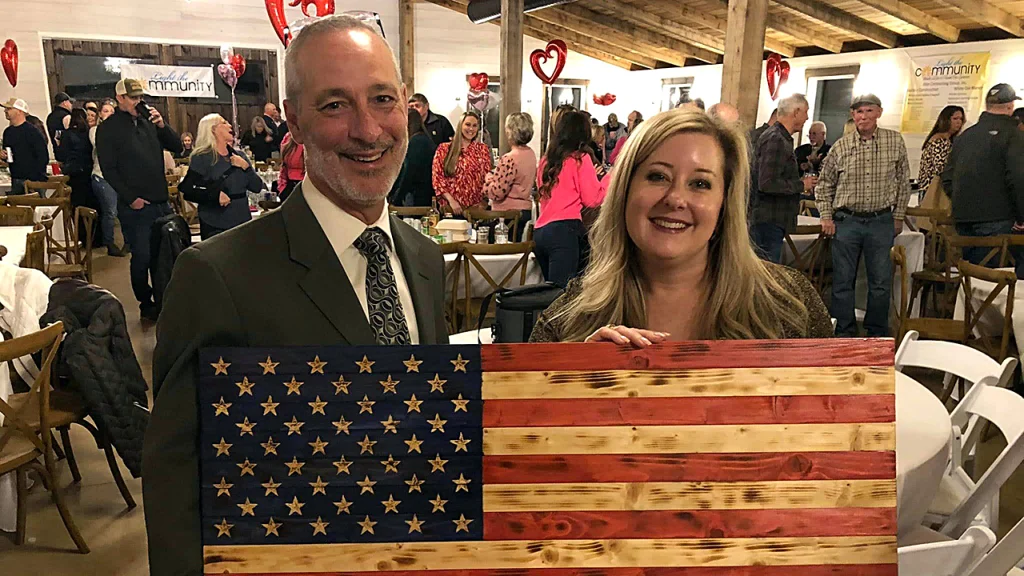Virginia Republican Delegate Criticizes Spanberger’s “Rage” Comments After Death Threat
In a tense political climate where rhetoric and responsibility have become increasingly intertwined, Virginia Republican Delegate Kim Taylor is speaking out against Democratic gubernatorial candidate Abigail Spanberger following a disturbing death threat. Taylor, who represents Petersburg, became the target of threatening messages last week from 33-year-old Michael Ray Strawmyer of Dinwiddie County. The suspect, who reportedly ranted about Republicans “ruining” the country in his communications, has since made a court appearance and remains in custody at a state prison in South Hill. This incident comes amid heightened concerns about political violence across the nation, with Taylor directly connecting the threat against her to what she characterizes as inflammatory rhetoric from Spanberger.
At the center of this controversy is Spanberger’s campaign rallying cry to supporters to “let your rage fuel you,” a phrase Taylor believes contributes to a dangerous political environment. “This is the same violent rhetoric we’ve seen from Democrats for years and Republicans have paid the price,” Taylor stated, citing examples including the baseball field shooting that nearly killed Representative Steve Scalise, assassination attempts against former President Trump, and the recent murder of conservative activist Charlie Kirk. Taylor’s forceful critique suggests that these aren’t isolated incidents but rather the predictable outcomes of inflammatory political discourse. She contends that effective leadership requires unity and courage rather than rage, arguing that Spanberger has “disqualified” herself from gubernatorial consideration through her choice of words.
Spanberger’s campaign has pushed back against these characterizations, insisting that Taylor has taken the “rage” comments out of context and emphasizing that the candidate “immediately condemned this horrific threat.” According to a campaign spokesperson, Spanberger’s remarks were intended to motivate supporters toward constructive political activities like writing postcards and door-knocking—not to incite violence. The spokesperson stressed the importance of understanding the context in which these comments were made, suggesting that the interpretation of her words as a call to violence represents a fundamental misunderstanding of her message. Despite these clarifications, the controversy highlights the ongoing debate about the responsibilities public figures bear for the potential consequences of their rhetoric.
The confrontation between Taylor and Spanberger unfolds against the backdrop of Virginia’s increasingly competitive political landscape. Taylor made history in 2021 when she unseated Democrat Laschresce Aird in Petersburg, a traditionally Democratic stronghold, winning by approximately 500 votes. Her subsequent reelection in 2023 was even narrower, with a margin of just 50 votes. This electoral history underscores the high-stakes nature of political discourse in the region, where small shifts in voter sentiment can determine election outcomes. Taylor’s 2025 opponent, Kimberly Pope Adams—who nearly defeated her in the previous election—has focused her criticism on the Trump administration and cuts to social services in the rural areas of Surry and Prince George counties.
The incident has also drawn in other prominent Virginia political figures, including Lieutenant Governor Winsome Earle-Sears, the Republican gubernatorial nominee running against Spanberger. Earle-Sears responded to Spanberger’s “rage” comments by invoking Virginia’s longtime tourism slogan, “Virginia is for Lovers,” creating a pointed contrast between love and rage as guiding principles. This rhetorical move highlights how the controversy extends beyond personal disagreement between Taylor and Spanberger to represent competing visions for the state’s political culture and leadership approach. The juxtaposition of “lovers” versus “rage” frames the gubernatorial race as a choice between fundamentally different emotional and philosophical orientations toward governance.
In many ways, this confrontation exemplifies broader national tensions around political speech and violence in America. The past several years have seen numerous incidents where political rhetoric has been followed by threats or acts of violence, raising difficult questions about causality, responsibility, and the boundaries of acceptable political discourse. Taylor’s assertion that Spanberger’s words contribute to a dangerous environment reflects a growing concern among many Americans that heated political language can inspire real-world harm. Meanwhile, Spanberger’s defense—that passionate advocacy for political engagement differs fundamentally from incitement—highlights the challenge of maintaining spirited democratic debate without crossing into dangerous territory. As Virginia approaches its next election cycle, this incident serves as a sobering reminder of the potential consequences when political disagreements escalate beyond respectful bounds.















